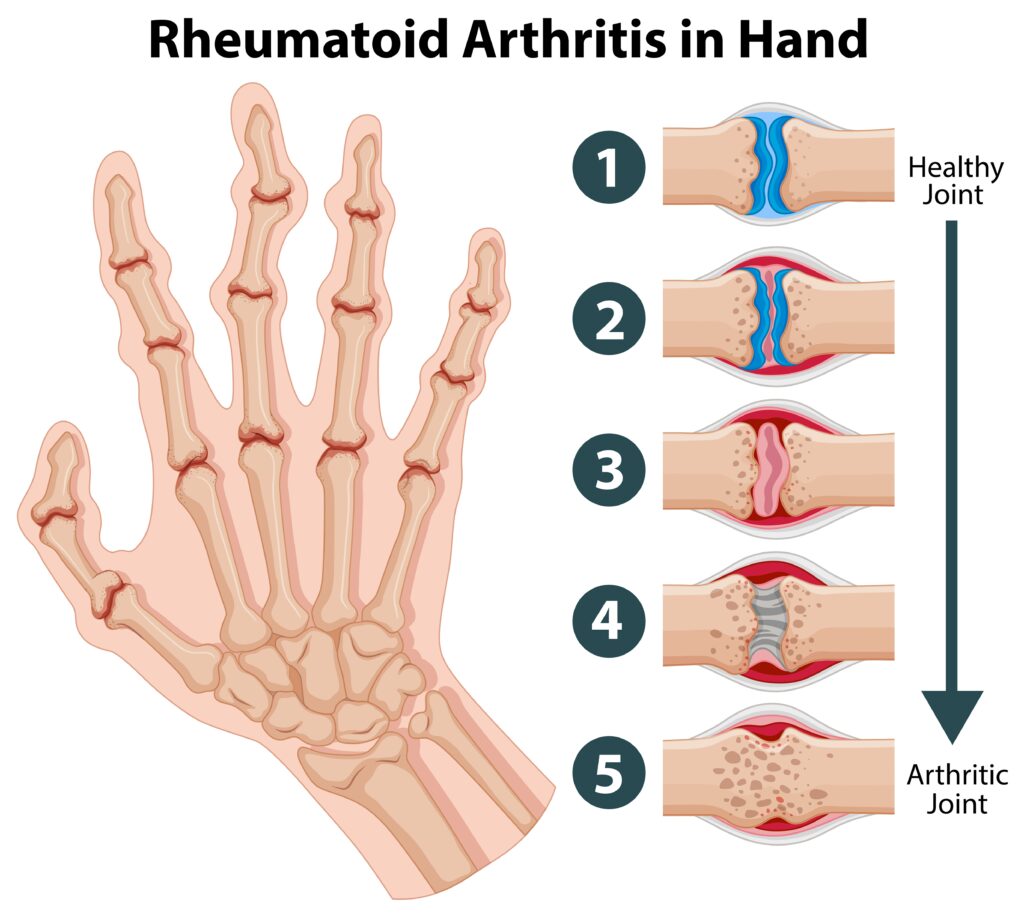
Rheumatoid arthritis (RA) is a challenging condition affecting many individuals worldwide, characterized by inflammation in small joints and associated with significant morbidity and mortality. While the exact causes of RA are complex and multifactorial, research suggests a strong link between RA and vitamin D deficiency.
How can Vitamin D help relieve your Rheumatoid Arthritis?
Studies have consistently found that a majority of people with RA have lower levels of vitamin D, which can exacerbate RA symptoms and lead to increased pain and disability. Several factors contribute to vitamin D deficiency in RA patients, including insufficient intake from food sources, limited sunlight exposure, and impaired absorption due to medications commonly used to manage RA symptoms.
Vitamin D plays a crucial role in reducing inflammation, strengthening bone cartilage, and alleviating pain in RA patients. Research indicates that increasing vitamin D intake through supplements and sunlight exposure can help improve RA symptoms and reduce the risk of disability. Additionally, vitamin D supplements have been shown to alleviate other symptoms associated with arthritic conditions.

While some studies suggest a potential preventive role of vitamin D in RA development, newer research has questioned this association. However, there is strong evidence supporting the benefits of vitamin D supplementation in managing RA symptoms and improving overall quality of life for patients.
One mechanism through which vitamin D exerts its beneficial effects in RA is by modulating the immune response. Vitamin D regulates various immune cells and cytokines involved in inflammation, such as tumor necrosis factor-alpha (TNFα), interleukin-1 (IL-1), interleukin-6 (IL-6), and interleukin-17 (IL-17). By controlling the production and activity of these inflammatory mediators, vitamin D helps mitigate the autoimmune response and reduce joint inflammation in RA patients.
Testing for vitamin D deficiency is simple and involves a blood test to measure 25-hydroxy vitamin D levels. Normal levels of vitamin D are between 30-40 ng/mL, but optimal levels for RA patients may be higher, ranging from 50-80 ng/mL. Deficiency in vitamin D can manifest as worsening pain, depression, weak bones, fatigue, and difficulty concentrating, highlighting the importance of regular monitoring for RA patients.
In conclusion, vitamin D deficiency is common among individuals with rheumatoid arthritis and may worsen RA symptoms and disease severity. Increasing vitamin D intake through supplements and sunlight exposure can help alleviate inflammation, strengthen bones, and improve overall well-being in RA patients. Regular monitoring of vitamin D levels and supplementation as needed are essential components of comprehensive RA management.


